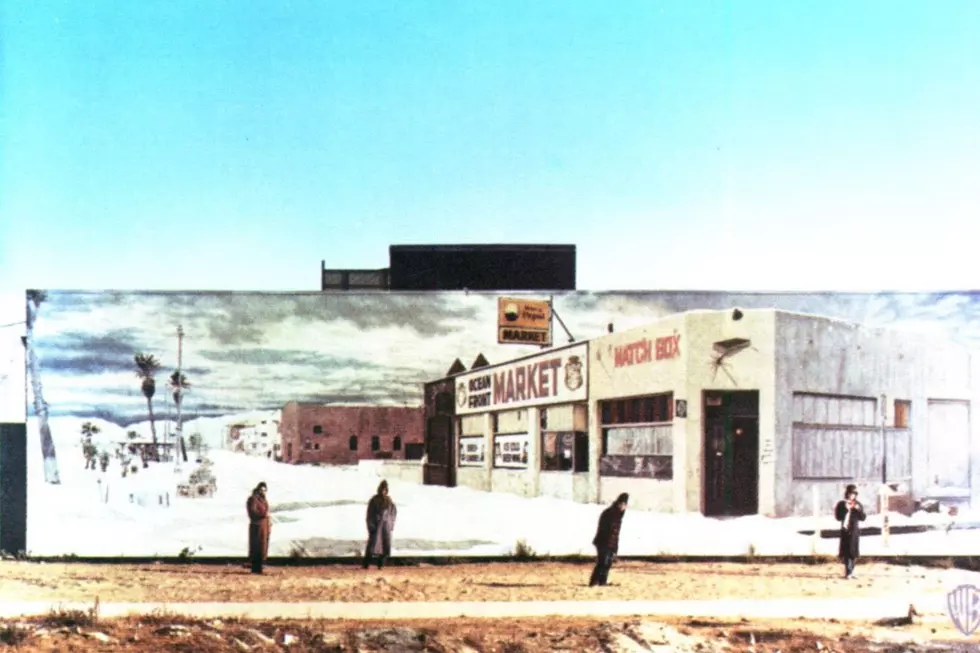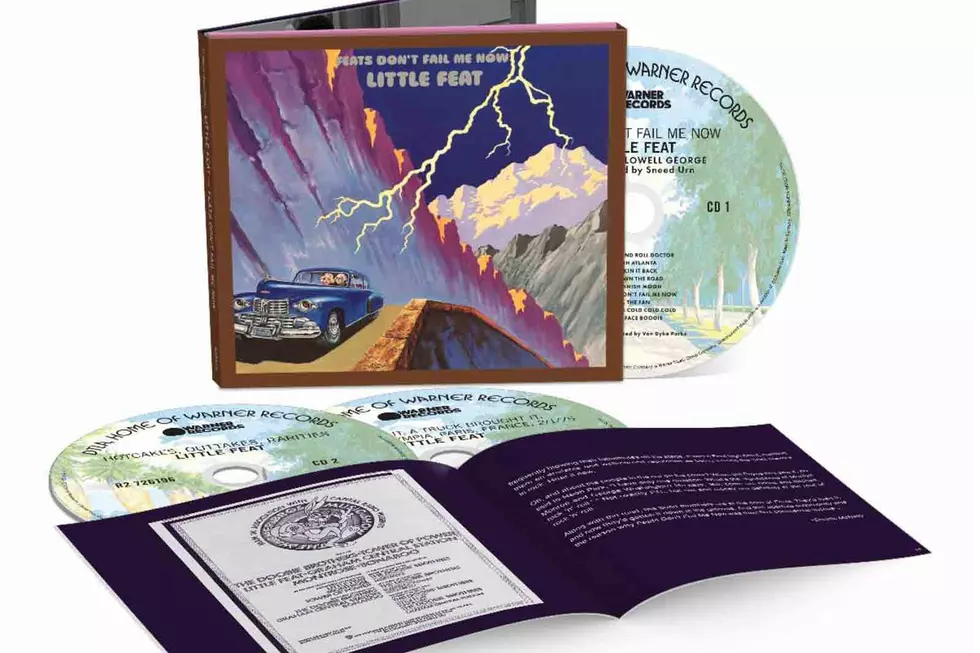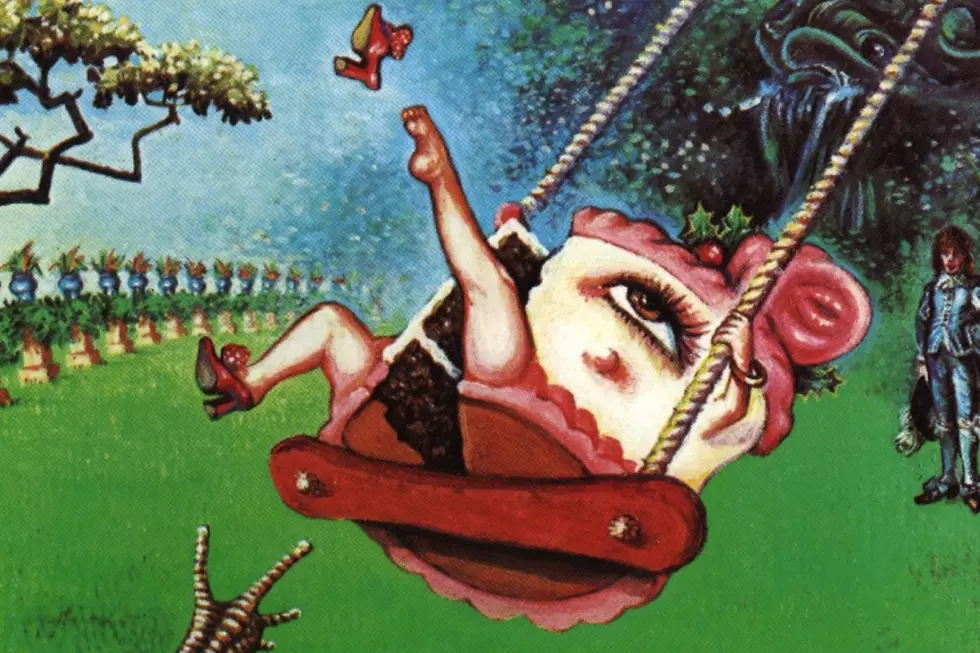
How Little Feat’s Eclectic Self-Titled Debut Pointed Toward Bigger Things
For a lot of young musicians, losing a gig with a highly respected artist like Frank Zappa might be cause for concern. But for Little Feat guitarist and singer Lowell George, the end of his brief tenure among the Mothers of Invention was merely the beginning of one of rock's longest, strangest, and most consistently satisfying journeys.
In fact, by the time George reached Zappa's orbit, he'd already been through a number of career changes. An adept guitarist and distinctive vocalist, he came to the Mothers after a period spent fronting his own band, the Factory, followed by a tumultuous month spent as the singer for the Standells — a position he yielded after discovering it put him in the crosshairs of angry fans who blamed him for the departure of the band's previous frontman, Dick Dodd.
After closing what he'd later term an "abortive" chapter in his life as a professional musician, George drifted into the Mothers sometime during 1969, lending vocals and guitar to a number of shows and recordings during a particularly fertile period — so much so that later, not even Zappa and George agreed on which albums included George's participation. As he had with the Standells, George passed through the lineup fairly quickly, exiting after a six-to-nine-month stint that — according to legend — ended when Zappa heard the George composition "Willin'," which included a reference to "weed, whites and wine."
"I'd played in Frank's group for about nine months and he came up to me and suggested I formed my own group," George later told Melody Maker. "It was a polite way of saying I was fired."
Listen to Little Feat Perform 'Willin''
As it happened, the seeds were already sown for George's next chapter. He'd formed a bond with Mothers bassist Roy Estrada, and found a keyboard player in Bill Payne — a musician he'd unsuccessfully tried to get into the Mothers of Invention.
"Bill came to Los Angeles and I took him up to Zappa's house to audition for the Mothers, but Frank was editing a trailer for 200 Motels and didn't have enough time to talk to Bill," George later told ZigZag. "So we drove back to my house where he was staying, and I said: 'why don't you join a band?' He said: 'Okay, what the heck.'" and that was five years ago. And we've been doing it ever since."
George even had a band name at the ready courtesy of Mothers drummer Jimmy Carl Black, who's said to have pointed at George's size 8 shoes during a rehearsal and scoffed, "Little feet." Adding a Beatles-inspired twist to the spelling, George enlisted former Factory drummer Richie Hayward and christened his new group Little Feat. With a bit of backing from Zappa, the band started playing out and cutting a series of early demos.
"The drug references, first and foremost, I think that put Frank off. But Frank dug Lowell," Payne told Rhino. "I mean, he liked him, so he knew 'Willin" was a good song, and that Lowell really ought to be putting his talents elsewhere, and if Frank could help on that, then that’s what would take place. I wasn’t exactly sure in the beginning how much or what Frank was doing behind the scenes to help us, because...well, we took a year before we wound up at Warner Brothers, for example. We went through a lot of different people to try and get the right fit."
As Payne noted, Zappa's interest in the new group waned before Little Feat were able to gel in the studio, and they endured a period of touring dive bars while working up new material and attempting to secure a label deal. "We did any number of psychedelic dungeons across the country," George recalled. "Our first gig was at a club where there was a big notice above the stage that said 'No Fighting Allowed.' It appeared that the MC5 had started a riot there the previous week."
Eventually, Little Feat signed with Warner Bros., where they entered the studio with Russ Titelman during 1970 to track what would become their self-titled debut. Like many first albums, it presented a work in progress — a bewitching blend of cockeyed humor and top-flight musicianship that confidently incorporated an unwieldy grab bag of influences. Still, it also tended to leave the listener with the feeling that, as enjoyable as the record was, Little Feat never really captured the band firing on all four cylinders.
"It was what we sounded like back then. The material was very difficult to peg and to go, 'Yeah, they sound like this,'" Payne said years later. "It’s still quite unique. It had influences of the Mothers, the Band, Leon Russell and a bunch of other things. I didn’t sound like Leon, but I tried putting that rasp in my voice and all that stuff. It was just this unique blend of Americana music, essentially."
Listen to Little Feat Perform 'Snakes on Everything'
Little Feat was led by a strong assortment of George originals — he wrote or co-wrote eight of the 11 tracks — that included their first (but far from their last) version of "Willin.'" The recording, which would go on to inspire covers from a list of artists that included Linda Ronstadt, served as a sort of microcosm for the group at that point: Although it hinted at their later greatness and served as a fine calling card for George's unique songwriting perspective, they had to enlist Ry Cooder for an emergency pinch-hit on slide guitar after George sliced up his hand while messing around with a model airplane.
That sort of thing tended to dog Little Feat a great deal during their early years. The band's ambling sound, a bouillabaisse of syncopated rhythms topped off by Payne's barrelhouse piano and George's distinctive socket-wrench slide guitar, earned them rave reviews, but they didn't immediately translate to major sales — partly because their off-kilter brand of rock 'n' roll made it difficult to squeeze them into any particular radio format.
"Everybody conducts the band at some moment. There are times when everyone has a chance to hold things together," George told Melody Maker. "Everybody has a moment when the thread of consciousness of the band is being held together by that person."
It would take some time for a mainstream audience to pick up on that thread — and by the time they did, Little Feat were already drifting apart, with George's growing health issues and waning interest diluting their impact at a time when years of work might have paid off in a big way. He passed away on June 29, 1979, at the age of 34, while on the road promoting his only solo record, Thanks, I'll Eat It Here. Little Feat would ultimately regroup in the late '80s, and while it would be impossible to replace Lowell George, they've continued to embody the restless standard set by their late bandmate.
"We'll do it the way we wanna do it, and people can line up in droves and tell us we're fucking up because of the way we dress and the way we put a show on, and what we say in our songs and what our songs do," George once told Creem. "And you know what? I don't care about any of that."
See Little Feat in Key Moments in Country Rock History
More From Ultimate Classic Rock









